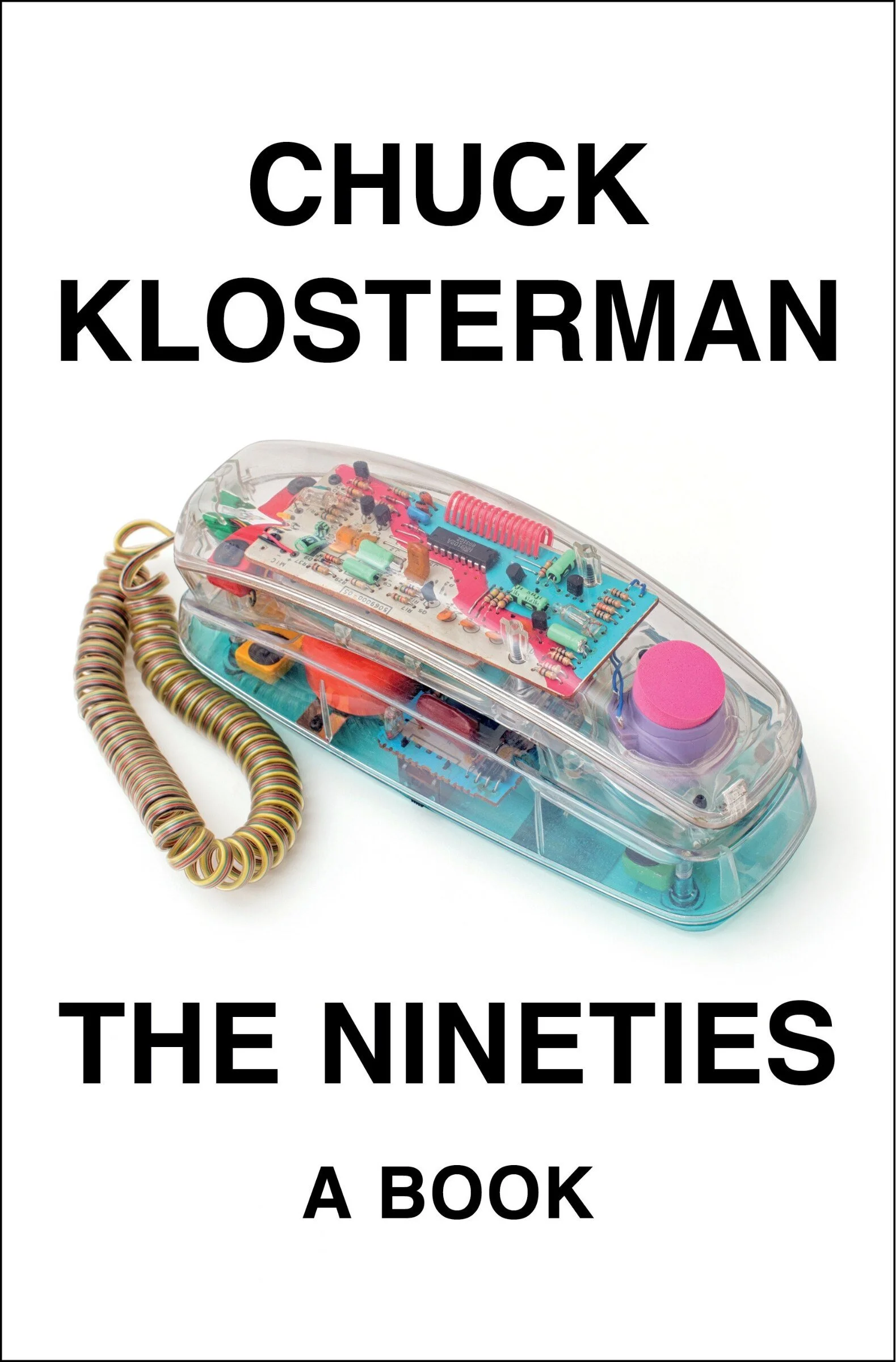Book Review : Chuck Klosterman - Raised in Captivity (2019)
Order Raised in Captivity here
In 2019, there’s only a handful of questions that are considered “important”: the inherent racism of the Trump administration, the explosion of the binary gender model, overconsumption, freedom of speech, digital privacy and general disenchantment towards technology. They are what everyone talks about all the time when they talk about “serious stuff”. Author, essayist and patron saint of this site Chuck Klosterman has been dodging these questions in public discourse like Neo’s dodging bullets in the matrix for two decades now. It’s both a great and a terrible thing.
It’s great because it shows Chuck Klosterman is smart enough not to get wrapped into questions he can’t answer without alienating people and it’s terrible because it feels like he’s constantly hiding the truth. Why his answer to these questions precisely would reveal his character, I don’t know. But fans like me all want this truth to be our truth. To vibe with Klosterman on the “important” issues. His new short story collection Raised in Captivity is sort of an answer. It’s no rah-rah political posturing, but it’s every bit as cerebral, nuanced and original as we hoped for.
The story Toxic Actuality is perhaps one of the most straightforward example. It features a college professor dragged in front of the dean by a student for microaggressions. The entirety of the story consists in a discussion between that teacher and a colleague, on his way to the dean’s office. What begins as a pretty straight kids-can’t-take-the-real world argument is quickly turned inside out by the said colleague and exposes an important point none of us are talking about: we created the world our kids are trying to change and given them the tools to do so. And it’s not something unique to our generation.
It’s a confronting story, but the outlook is so broad and original that it avoids points you know how to defend and forces you to genuinely reconsider an adversarial point of view. Blizzard of Summer is another story I really enjoyed, which explores the gaps between artistic intent and public perception. The title refers to a song from a previously unknown band becoming a “runaway alt-right hit” with racist people. In the story, the band is preparing its public acknowledgement of it and decides whether or not they should still play it. It examines the question of cultural ownership. Who does art belong to: the artists or the audience?
I’m not going to walk you through every stories here, but other standouts to me were: Every Day Just Comes and Goes, which deals with the issue of ecological anxiety and personal responsibility; Pain is a Concept by Which We Measure Our God, which explores our instinct to delegate every discomfort to technology and Rhinoceros, which happens in the future where you can rewrite the past on Wikipedia. There’s over thirty stories in there and none of them are innocent, so I’ll leave you the pleasure to discover them for yourselves. Klosterman is pretty upfront about their individual purpose. It’s there and you don’t need a PhD to figure it out.
*
Raised in Captivity is a lot more demanding than Chuck Klosterman’s nonfiction and, to a certain extent, than his two novels Downtown Owl and The Visible Man. His pop culture essays effortlessly build bridges with his readers by adding value and original insight to shared experiences like Kanye West or zombie fiction. These stories have a more didactic and personal feel to it. They’re entertaining, but not for the same reasons Klosterman typically is and perhaps that’s why Amazon reviewers are atypically hard on the book. Raised in Captivity is like Chuck Klosterman leading you into the secret part of his brain.
It does make you feel smarter like his essays, but not about stuff you usually feel dumb about like watching a television show or listening to a rock band everyone listens to.
That brings up the question: is Chuck Klosterman simply better at writing nonfiction? It’s kind of impossible to answer. He’s made a name for himself and built an audience by giving “low art” nobility through his fiercely original analysis. It’s like Radiohead making a name for themselves by playing alternative rock. They were great at it and part of their 90s audience never forgave them a left turn into a more difficult sound. Raised in Captivity is more of a Kid A or an In Rainbows. It’s conceptual, critical and detached from conventional models of its medium. It feels weird to say that, but it’s… “high art”?
The only comparison I can make for Raised in Captivity is the short fiction of David Foster Wallace. I know, it’s a horrible cliché. A mortal sin for a book reviewer. But Wallace and Klosterman write with similar intent: their nonfiction augments our reality with their unique and invigorating perspective and their fiction is more personal, intimate. It’s a conversation between inner selves they’re trying to have with their readers, like Wallace explained to Charlie Rose, Larry McCaffery and many others. The main difference between the two is that Chuck Klosterman’s mind is a more democratic place than David Foster Wallace’s.
In other words, he cares more about being understood.
Is Raised in Captivity good? Absolutely, it’s fucking awesome. There isn’t anything even remotely similar being done today. But you kind of have to know the guy to fully appreciate what’s going on? I found that a prior understanding of Chuck’s writing, thought process and media presence really unlocked the meaning of some of these stories. There’s an Amazon review for Raised in Captivity that’s titled: “If you love Chuck, you’ll get it.” It’s the simplest way I can explain it. It was a demanding reader experience, but I’m happy to see such a brilliant mind take a (successful) swing at something so different and ambitious.
It’s not a homer, but it’s a double with 3 RBIs.
8.9/10






